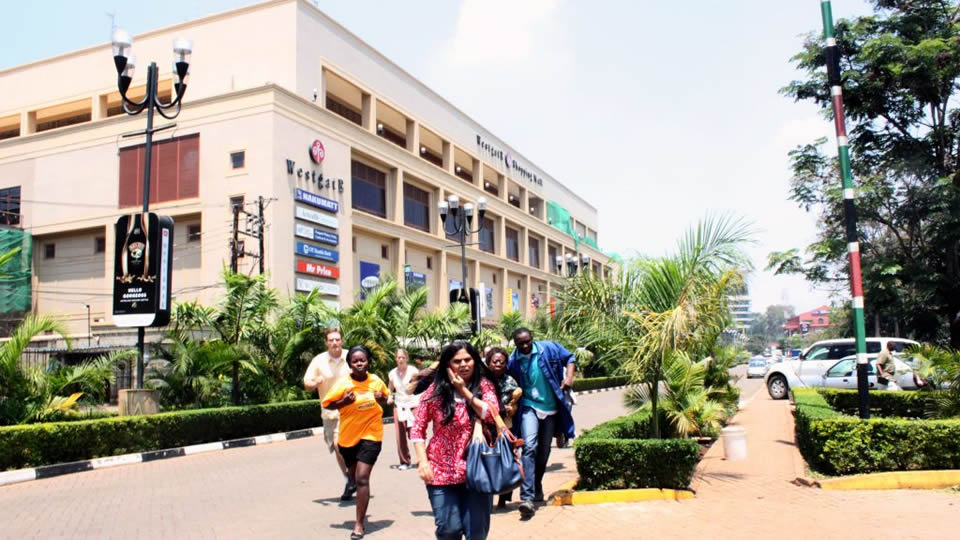This week marks one year since the September 21st, 2013 Westgate Terror Attack that left 72 people dead, hundreds wounded, thousands disoriented and others traumatized.
Research in the field of psychological trauma indicates that those who directly experience a disaster suffer the greatest impact: the wounded, bereavedand those who suffer serious loss. Next are the bereaved family members, witnesses of the event as well as others close enough to feel their pain. Trauma also impacts service providers.
As the Kenya Psychological Association team offered services to survivors, we also served first responders: rescue crews, media teams, the Forces, security agents and otherservice providers who often do not realize that they are affected. Counselors and Psychologists who were serving thousands of survivors also received Supervision.
We are aware that besides Westgate, Kenya has suffered many traumatic incidents. For survivors of the Westgate attack, the name“Westgate” became a metaphor representing many other unresolved traumas. Indeed, Kenyans’ memories of traumatic incidents go farback to the Mau Mau War and many veterans still carry emotional scars ofpsychological trauma, loss and grief. More recent incidents include landclashes, post election violence, Molo tanker fire, Sinai inferno, grenade attacks,Baragoi incident, Mpeketoni deaths, road accidents, bereavement from illicit brews, Garissa attack, and so on.Other people in our Nation carry inner wounds of rape and incest, domesticabuse, armed robberies and the impact of HIV/AIDS. People who have been retrenched, lost jobs,and even relocated like those in IDP camps also experience traumatic stress. These incidents represent hurting Kenyans, grieving families, and mourning communities.
How are Kenyans coping under these layers of traumatic stress? Many go on withtheir lives – farming, jobs, trading and running their businesses. On one hand,Kenya is a resilient Nation. We have a gift of joy and laughter inspite of many struggles that we face. For this reason, we maintain politicalstability and unity. The tenacity of Kenyansstands out. They maintain focus and produce innovative results instead of concentrating on traumas of life. Indeed, Kenyans have the gift of restoringorientation and copingfar above many nations in Africa.
Although many of us rise above traumas of life and move on, there are others whomay be struggling to cope with past or more recent traumatic experiences. Unresolvedtraumatic stress multiplies in our psyche, and if not effectively managed can lead to complications. For example, recurrent memories of the traumatic event may affect sleep,appetite, and cause headaches. Some people avoid memories of the eventor individuals and locations that may arouse traumatic reminders. There arepeople who still avoid the location of Westgate as well as busy shopping malls. Others still carry feelings of guilt, anger and fear related to the event. Some individuals have behavior changes that started after the traumatic event: angry outbursts with no provocation, reckless behavior andgetting easily startled. For example, when a car backfires, someone gets alarmed feelingas if the gunfire at Westgate is happening all over again. We need to note that these are normal reactions to the traumatizing event. What is not normal is allowing the impact of trauma to go on for too long without self-care or other-care as needed.
Since traumatic stress affects the whole system: body, mind, emotions, the spirit,relationships and social networks, self‐care after a traumatic experience is the place tobegin. Specifically, exercise in moderation as well as relaxation helps. Other strategies aretalking to another person for support, eating regular healthy meals, spending time withothers and participating in a support group. For many Kenyans, spirituality is key in coping: belief that God is in control of his world. However, if symptoms persist, seek professional help.We have several counseling centers and psychological clinics for this purpose.
Some habits do not help us to cope with traumatic stress. For example, some people use alcohol or subscription drugs to make the symptoms go away.These aggravate poor coping and can lead to addiction. Other people withdraw fromsocial activities, family and friends. This lowers social support and allows traumasymptoms to persist. Still, others work too many hours to drown trauma memories, eat too much or too little, blame themselves or others, and engage in risky behavior. Allthese behaviors make things worse.
Therefore, many survivors of Westgate have recovered from the symptoms of traumatic stress after theattack. They no longer carry painful memories of the event although memories of thepain may persist longer. As Kenyans, we need tomonitor ourselves as well as take care of one another. This care includes responsible handling of our childrenand young people. Kenya, we are doing well after Westgate. Let us keep our hands joinedtogether across ethnic, social, racial and economic lines. This will give us the resilience weneed to move into greater heights as a nation in spite of the challenges we face. After all, we are all fellows in the same national ship.

